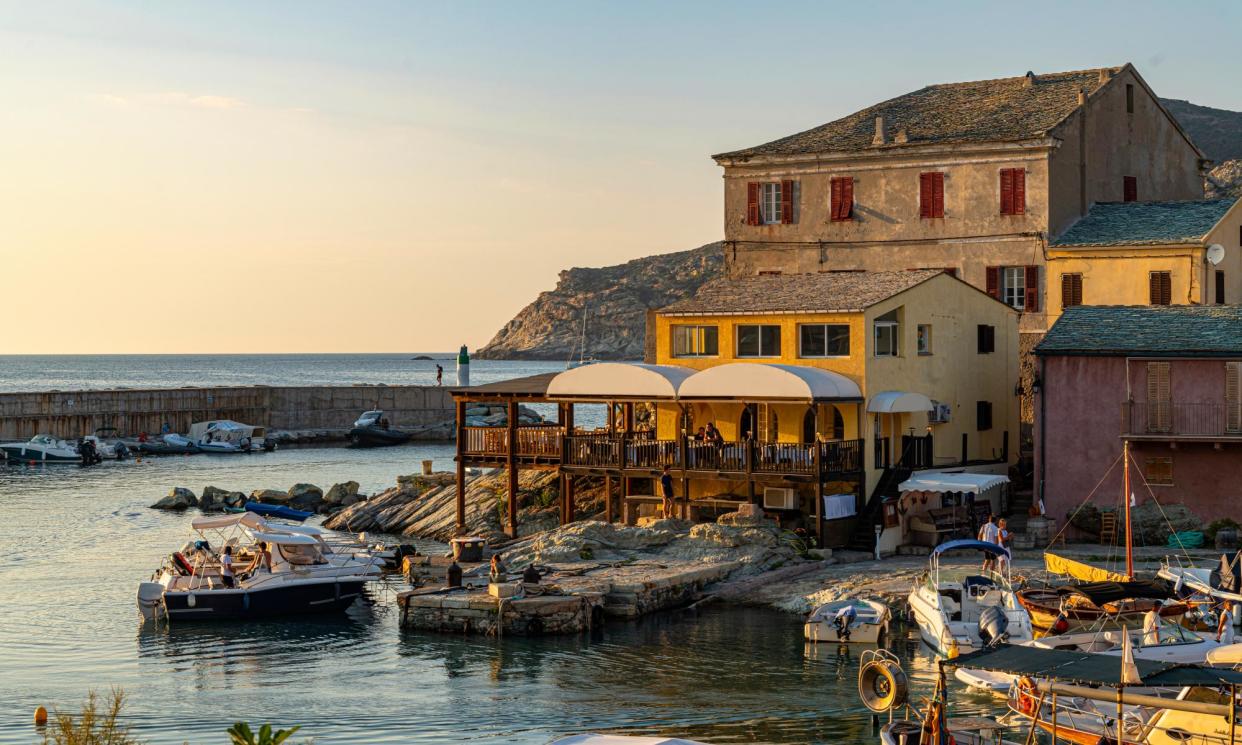It was the rock lobster: the lure of Centuri, Corsica

As I dangle my feet in the cool, clear waters off northern Corsica, I have only a yacht moored 100 metres away for company. Sailing would have been the more glamorous way to arrive at the port of Centuri, a small fishing harbour on the far north-west tip of Cap Corse, but instead I have the thrill of the drive.
I follow the twisting lanes carved out of the steep hillsides that descend into the sea with barely room for two cars to pass. While the drive may be heart-stopping, the views are simply jaw-dropping; Centuri comes into view when I stop at the Moulin Mattei look-out point, where a terracotta-roofed windmill is set on the former site of the island’s much-loved Cap Corse distillery.
I walk up to the viewpoint to take in the spectacular panorama of the jagged coast and breathe in the heady aroma of the maquis – the herb shrubland that cloaks the landscape. Down below, Centuri’s harbour beckons me to come closer for a lunch of the local speciality: rock lobster or langouste.
I take in the spectacular panorama of the jagged coast and breathe in the heady aroma of the maquis. Down below, Centuri’s harbour beckons me
Despite its size, Centuri is France’s capital of rock lobster fishing, though the fleet is much reduced from its 1960s heyday. Back then, about 20 families line-fished the cluster of rocks 40 minutes out to sea, but now just five continue the tradition, which is strictly limited to ensure sustainability. There seems no shortage, however, with all of the village’s restaurants offering it on their menu.
Indeed, there is little more to Centuri than the harbour and its restaurants, each with numerous terraces that cling to the harbour walls, and a sophisticated air despite its remote setting. Perhaps that’s the lure of lobster.
I take a table at the family-run U Cavallu di Mare (“the seahorse” in Corsican), where the terrace is built like the prow of a boat and overlooks the sea wall. Chef Jean-Christophe Strinna comes out from the kitchen and leads me to a tank from which he plucks a rock lobster to show me how it doesn’t have big claws like a red lobster. I make eye contact with my lunch and, as I return to the table considering a new life as a vegetarian, Jean-Christophe disappears back into the kitchen to cook.
Related:We took the kids to Corsica without flying – by adding three days of adventure
Soon, his sister Jessica serves my entrée, soupe à l’araignée (spider crab soup with croutons and rouille), and as I sip the delicious, tomato-rich dish from the spoon, I watch a boat come into the harbour while around me fellow diners take their seats. My half rock lobster lunch is succulent meat, served with crushed potato drizzled with peppery olive oil, roasted cherry tomatoes and a courgette gratin. I get to work with the tools to fish the meat from the spindly legs and narrow claw.
After dessert of the island’s signature fiadone (a flan-like cheesecake made with its brocciu sheep’s cheese) I wander down along the quayside where nets and buoys are set in neat piles. From there it is just a few minutes’ walk to the water’s edge to sit on the rocks and gaze into the azure water and relax before the thrill of the onward drive.
The trip was provided by Visit Corsica. Hotel Le Saint-Jean in Ersa has doubles with a sea view from €91 (€154 in summer) room-only


